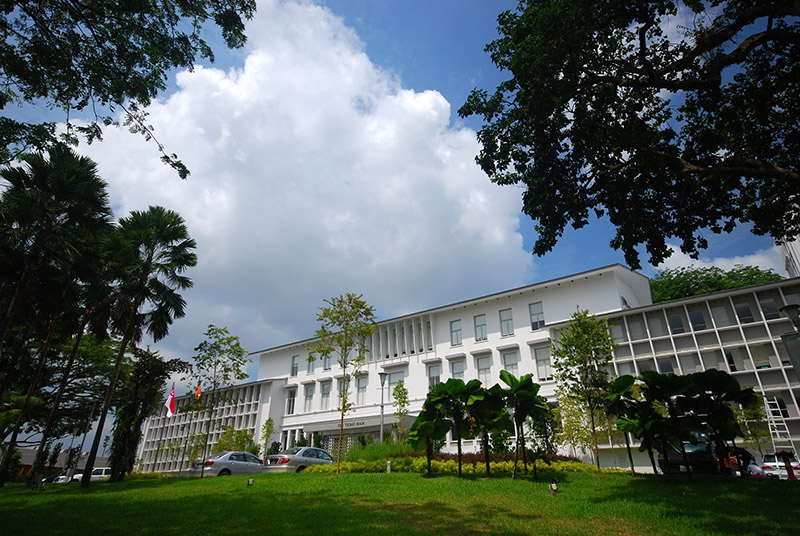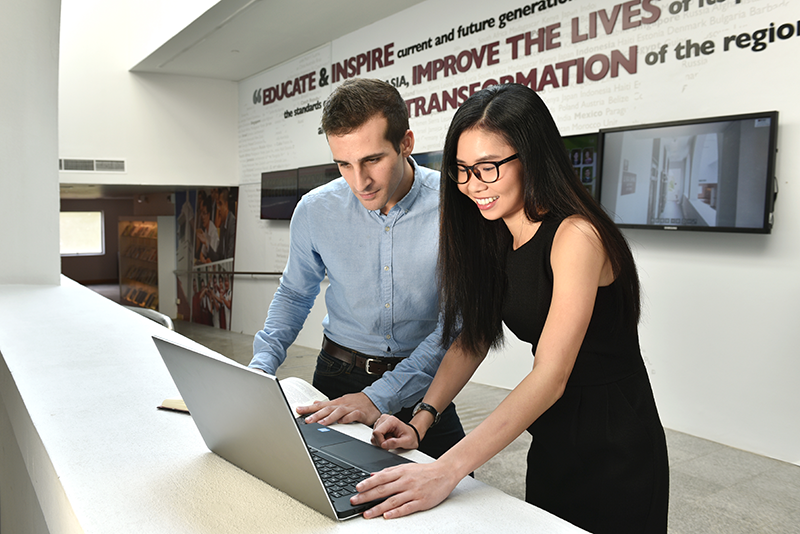Advantages of Taking a Master’s Overseas
Considering the global trend on taking a Master's overseas, you may have thought about applying for study-abroad master’s programmes yourself, and how they could benefit you in the long run.
Getting out of your comfort zone to study a master’s abroad is one way for you to develop emotionally, mentally, intellectually, and professionally, among others. It also gives you a chance to see the world.
Studying in the Lee Kuan Yew School of Public Policy, part of the National University of Singapore will pave the way for an exciting life experience for you. Not only will you experience living in Southeast Asia’s economic powerhouse, which is one of the top and most preferred educational destinations in the world, you will also enjoy the thrill of living in a different place from your home country.

Lee Kuan Yew School of Public Policy, part of the National University of Singapore lies cheek by jowl with the sprawling world-famous Singapore Botanic Garden.
Cost of Studying a Master's Programme Abroad
Study-abroad programmes attract the world's best students and can typically be expensive.
Nevertheless, the high costs should not discourage you from pursuing your goal of completing a study-abroad master’s programme.
Besides scholarships from schools and public organisations, private organisations like the World Bank and the Asian Development Bank also provide many kinds of scholarships for postgraduate students. Read more about them here.
Duration of the Postgraduate Course
A full- time master’s programme abroad usually takes two to three years to complete. There are also master's programmes (Master in Public Administration) offered by the Lee Kuan Yew School of Public Policy that takes one year to complete.
Within this period, you would be expected to go through more in-depth studies beyond what is learnt in undergraduate or college programmes.
The subjects that you, as a postgraduate student, will take are more focused. Some courses, like those at the Lee Kuan Yew School of Public Policy, might also place more emphasis on classroom discussions and debates to hear views from classmates who are from other parts of the world.
For instance, a student pursuing a master's degree in international affairs will be studying political economy, international organisations, and international relations, which comprise a more focused coursework.
On the other hand, undergraduate courses in international affairs are not as in-depth. An undergraduate or college student, even if he or she is an international affairs major, would still have to take an elective course in English or business math. These elective courses are mandatory as part of the undergraduate four-year programme.
The goal of any advanced degree, such as study-abroad master’s programmes, is for students to gain a more comprehensive and thorough knowledge on their chosen field of study.
Selecting the Right Education Destination
If you have decided to study for a postgraduate degree or a master’s abroad, another consideration to think about is the choice of an educational institution.
For instance, typing the keywords 'master’s degree in international affairs top schools' on the Google search bar will result in thousands of colleges and universities appearing as suggestions.
To arrive at a suitable institution, it’s important to be specific in your search. The following questions and sample answers may help:
- In which country would you like to complete a study-abroad programme? United States/ Singapore
- What course do you intend to complete in your choice of country? Master’s degree in international affairs
- Which schools offer this course, and what is the name of their course offering? Harvard Kennedy School's Master in Public Policy Programme / Lee Kuan Yew School of Public Policy's Master in Public Policy Porgramme
Your responses to these relevant queries will help you arrive at the correct educational institution. You can then begin your application to the school’s program.

Process of Applying for a Master’s Degree Programme
There are several primary considerations for international students when deciding to study abroad.
- ”Are you willing to sacrifice your time and to be away from your family and stable job for approximately one to two years to complete an advanced degree abroad?”
- “Do you possess the competencies needed to complete an advanced course in international affairs?”
- “Do you have the financial means to undertake an advanced educational course”?
If you’ve answered "yes" to these three questions, then you are, indeed, prepared for a study-abroad master’s course.
These three aspects are the primary considerations of postgraduate schools in the United States, Singapore, and elsewhere:
- INTENT. Applicants should possess the maturity and dedication to complete an advanced degree.
- SKILLS. Applicants should have the capabilities necessary for the postgraduate course in international affairs.
- FINANCIAL CAPACITY. Applicants should have the means to support themselves financially, either through personal fundings, or through government or private sector scholarships in their country of origin or the host country.
Once these elements have been confirmed, perform the following steps:
- Complete the application form from your university or universities of choice.
- Prepare the essential documents such as the following:
- Academic records demonstrating your capability to complete your chosen course, including:
- Your letter of intent to complete, for example, a master’s degree in international affairs;
- Your college transcript of records showing your grade point average or GPA;
- Undergraduate diploma;
- Letters of recommendation from your college professor, thesis advisor, or employer;
- English language test results certification, such as those from Test of English as a Foreign Language or TOEFL, and the International English Language Testing System or the IELTS. Such a document is necessary if you are coming from a non-English-speaking country.
- Letter of scholarship from one's financial backer, or your proof of capability to finance your postgraduate studies abroad, such as bank savings account certifications from the financial institution where you keep your personal savings.
Referrals from people that you have worked or studied with, such as professors in college, or past employers can also help you complete the requirements for your postgraduate studies agenda. Their knowledge relating to your capabilities, research and academic performance, and work ethics can be instrumental in writing an effective recommendation letter to help your university of choice make the favorable decision of accepting you unconditionally.
It is important to note that different institutions will have different requirements. After sending these documents to your university of choice, it’s time to wait for further communication from the institution.
For international students, the university will typically respond regarding their decision through an offer letter, which will come after one to two months. This may be a conditional offer letter, meaning that the university is willing to accept the applicant into their programme, but some requirements have yet to be met. Alternatively, an unconditional offer letter indicates a successful acceptance into the programme, and you are set to embark on your university of choice soon.
The next step would usually involve applying for a student visa at, for example, the US Embassy or the British Embassy.
Housing Accommodation for Students
If you have finally secured a "yes" from your university of choice, the next step would be to look for a place where you will stay for the next one to two years while you take your Master's degree overseas.
Universities usually have student dormitories within their campuses. Students are eligible to apply for a place in these housing facilities. Furthermore, there are other housing options that are based near the campus that students can consider staying in as their home for the next two to three years. Besides campus housing, they can also consider living in apartment buildings or with host families.
From these options, students can scout the best housing accommodation that offers a location close to their school, or accommodations close to convenient establishments, like shopping malls, leisure centers, gyms, museums, libraries, restaurants, nature parks, and the like.